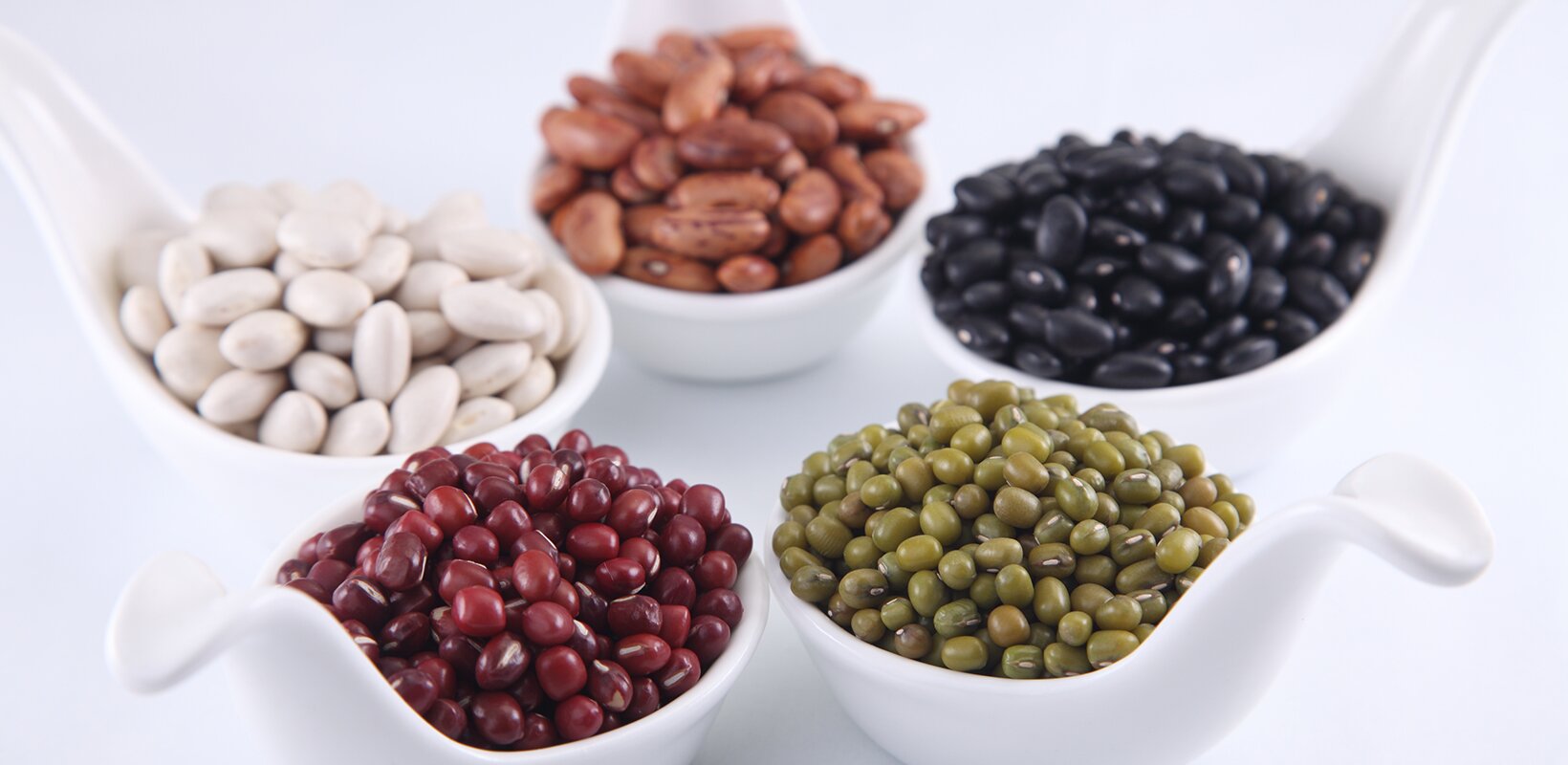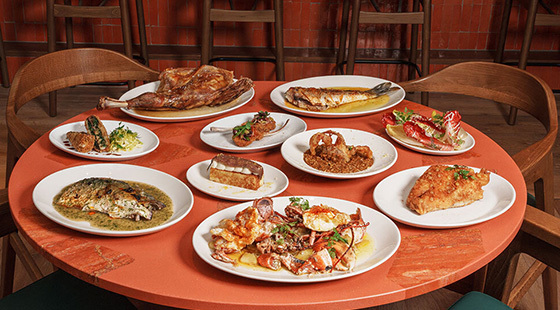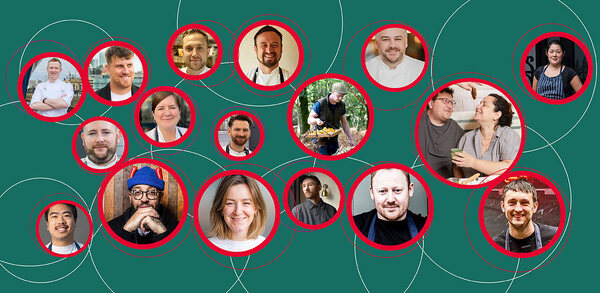Leading change to transform our food systems – because good food shouldn’t cost the Earth
By Mike Meek, Procurement and Sustainability Director, allmanhall (left) and Theo Kuehn, Sustainability Manager, allmanhall (right)

The catering and hospitality sector has a key role to play in addressing the systemic challenges we face, including those within our food systems. Over 30% of all food goes to waste, and food production is one of the leading causes of greenhouse gas emissions, biodiversity loss and water pollution.
By 2050, there will be 10 billion people living on our planet. This is 10% of all humans to have ever lived. The good news is that we have the means to grow more than enough food to feed even this number. However, to do so requires changing how we develop, grow and consume to avoid strain on the Earth’s fixed resources. Here, food procurement experts allmanhall look at how, in order to sustain this population, we need to close a food production gap of almost 60%. And at the same time transition away from our currently unsustainable food systems.
To learn more about the relationship between sustainable and nutritious food and positive change for the UK’s food supply, you may like to watch this short interview with allmanhall.
How did we get here?
Before industrialisation, farming was subsistence-based, producing only limited yields. It was with industrialisation that the capacity to produce food increased exponentially.
This helped lead to the green revolution, the global push to maximise the agricultural output of land. Monocultures (widespread areas growing only one type of crop) like wheat, became the primary commercial agricultural practice, maximising the profit extracted from the land. In 1950, farmland covered six percent of global habitable land. It now covers 50%.
This brought benefits and without it the population would have struggled to exceed four billion.
While a hallmark of the current food system has been the ability of food production to grow in line with demand, evidence now shows that the system is becoming increasingly strained and leading to significant environmental impacts.
What are the current impacts?
Food systems contribute to climate change, accounting for 26% of anthropogenic GHG emissions. Current food system demands are the leading cause of deforestation, biodiversity loss, water usage and nitrate pollution.
Despite growing more than enough calories to feed everyone, globally we are falling behind on almost every climate and nutrition goal. Two billion adults are currently overweight, while 783 million face hunger.
What we choose to eat is significant.
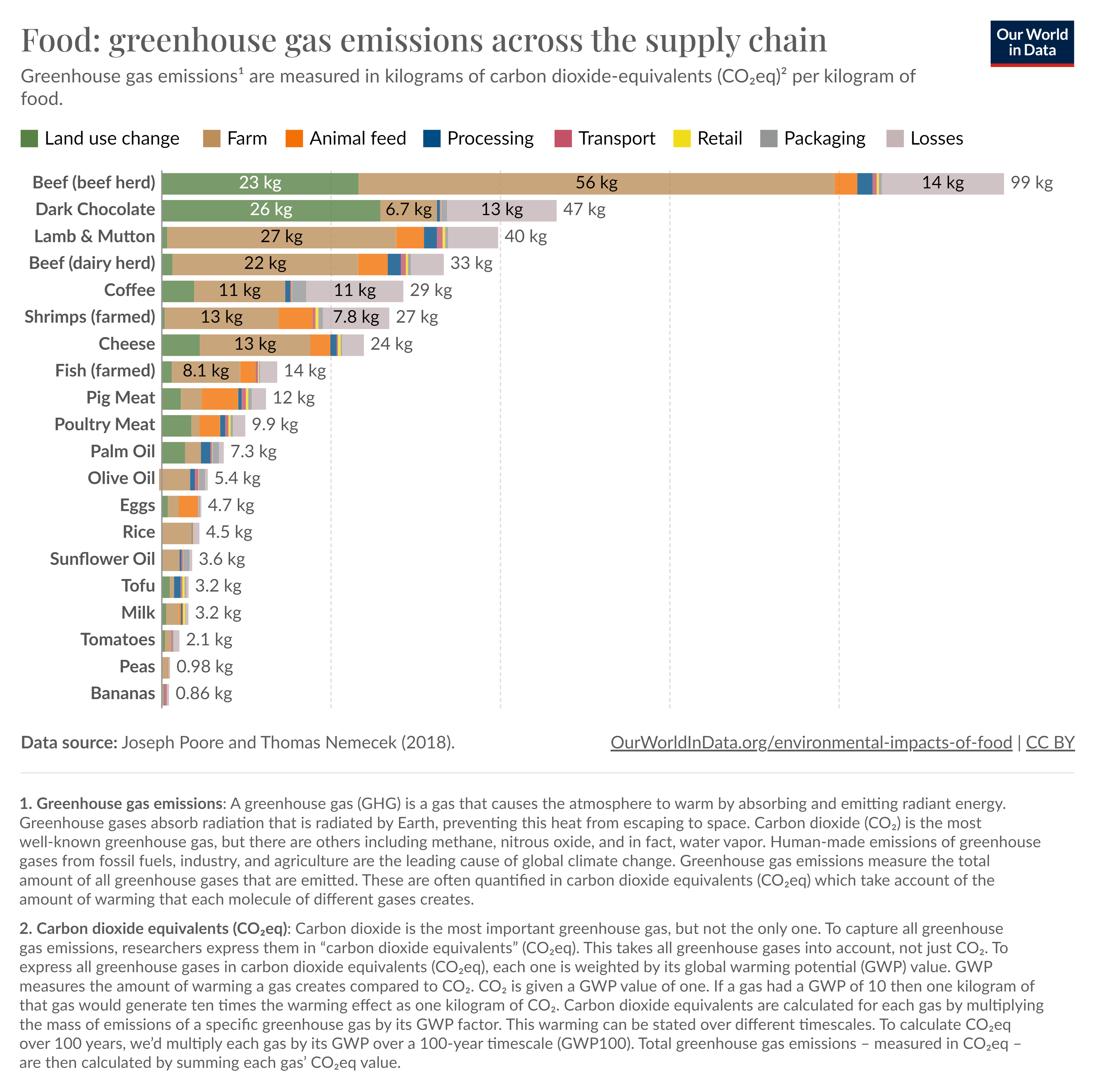
According to the Planetary Health Diet, to limit global warming to the 1.5 degree target of the Paris Treaty, we need to reduce food-related emissions to 1.85kgs of Co2e per 1kg produced. To reach this requires dietary shifts, alongside the implementation of sustainable production methods.
Meat is a category that is resource-intensive and high in environmental impacts. Each kilogram of beef requires 25kg of feed, and 15,415L of water, and emits around 100kg of Co2e. However, a kilogram of kidney beans, another excellent protein source, only requires 4,055L of water and emits 0.56kgs of Co2e. 77% of agricultural land is used for meat and dairy, which only provides 18% of global calories.
By switching to a plant-based diet, we could feed the world using just a quarter of global agricultural land.
Despite this high environmental cost, global meat consumption has doubled since 1961, from an average of 21kgs to 43kgs per annum.
Current trends also indicate this quantity is due to increase further, given the growth of Western-style diets within the middle class in Asia and Africa. The production of animal proteins is the cause of biodiversity loss from deforestation (beef alone accounts for 41% of tropical deforestation), feed food competition, and the growth of antibiotic-resistant bacteria.
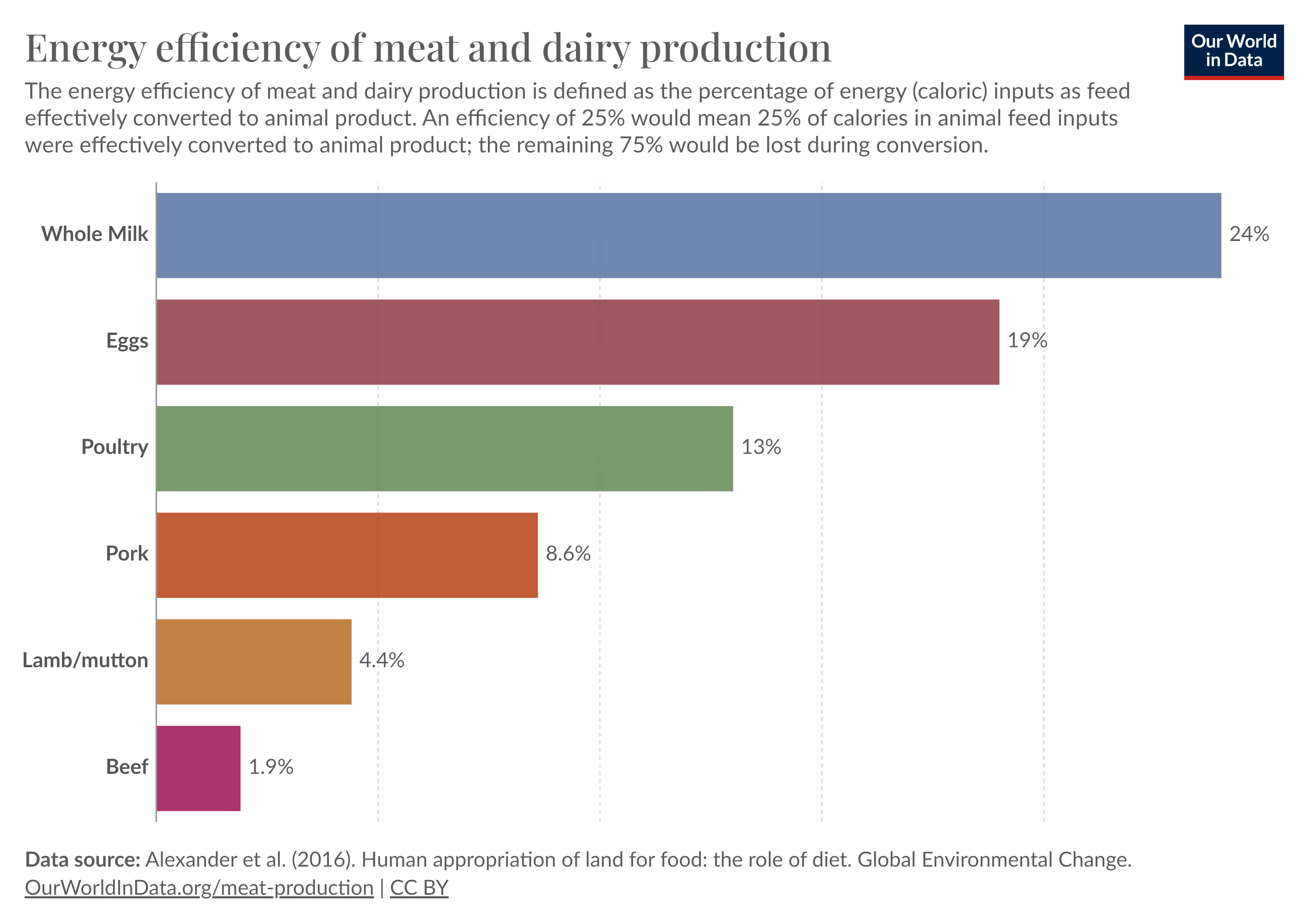
The need for change
Temperature rises of at least 1.5˚C above pre-industrial levels are anticipated globally, with 2023 being the hottest year in recorded history. Without behaviour change, this will rise to 3 degrees by 2050, leading to continued extreme weather events, biodiversity loss, and a drop in agricultural yields.
Biodiversity loss is threatening human health as well as livelihoods and food security. The capacity of nature to sustain contributions to good quality of life from 1970 has declined strikingly, with 1 million species facing extinction.
Current systems are close to planetary tipping points, such as global warming leading to ice melt in Greenland, affecting the Gulf Stream. Should this system collapse, European wheat production is forecasted to reduce by 30%. This will increase the price of domestic crops tenfold and place further challenges on global food systems.
However, sustainable food systems are gaining traction globally. In Andhra Pradesh, a region within India, over 10% of rice production is now regenerative. Rather than relying on chemical fertilisers, the focus is on natural soil enrichment and specific water management. This has seen a marked decrease in resource consumption while enabling an increase in productivity. Sustainable intensification is required, increasing the productivity of land and resources while minimising planetary impacts using technology, such as smart farming. With this, the food gap of 56%, especially in resources like rice, soybeans and wheat, can be closed without increasing agricultural land.
So, what does this all mean?
The global food system is key to human development and life itself. Food production relies upon natural capital, which is being significantly impacted by current agricultural practices. Operating within planetary boundaries, protecting biodiversity, and reducing pollution are essential for a sustainable future. Within the food system, it requires all stakeholders - from producers to suppliers, caterers to consumers - to use their influence and impact to ensure the systems we rely on are protected and regenerated.
Within a catering context, aligning your meal choices to planetary targets and supporting like-minded organisations are powerful drivers of change. Using platforms like Foodsteps to map the environmental impact of meals allows for measurement and improvement. Again, you may like to take a look at this interview for more details regarding hero dishes which are good for both people and planet.
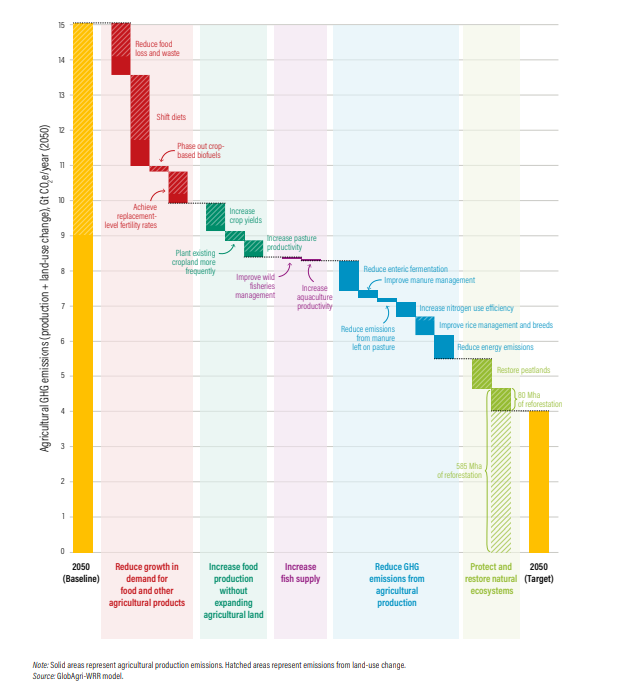
Supporting and partnering with businesses such as allmanhall, food procurement and supply chain management experts, who actively transform and champion transparency allows for clarity and helps promote planetary best practices.
In the words of Antonio Guterres, current Secretary General of the UN: “In short, our world needs climate action on all fronts, everything, everywhere, all at once”. Taking on that challenge, and being a change agent, demonstrates leadership, builds organisational resilience and creates the culture for innovation that is required to deliver sustainable food system transformation.
About allmanhall
allmanhall provides full management of the food and catering supply chain with a mission to deliver sustainable value.
Improving sustainability and nutrition in our diets can go hand in hand and allmanhall is working to contribute to much needed positive change in the UK’s food supply.
Learn more here
Bibliography and for reference [1] Harvey, Paul (1978) ‘So God made a farmer’ Speech given at Future Farmers of America Convention
[2] Viglione, G (2022) ‘What does the World’s reliance on fertilisers mean for climate change’
[3] United Nations (2023) ‘Sustainable Development Goals: Progress chart 2023’ unstats.un.org/sdgs/report/2023/progress-chart/Progress-Chart-2023.pdf
[4] Eat- Lancet Commission (2019) ‘Summary Report of the EAT- Lancet Commission: Healthy Diets from Sustainable Food Systems. eatforum.org/content/uploads/2019/07/EAT-Lancet_Commission_Summary_Report.pdf
[5] Food and Agriculture Organization of the United Nations (2020) ‘Cereals allocated to food, animal feed, and fuel, World’ Our World in Data ourworldindata.org/grapher/cereal-distribution-to-uses?stackMode=relative
[6] Ritchie, H (2021) ‘If the world adopted a plant-based diet we would reduce global agricultural land use from 4 to 1 billion hectares’ Our World in Data ourworldindata.org/land-use-diets
[7] Food and Agriculture Organization of the United Nations, (2020) ‘Meat Supply per person’ ourworldindata.org/grapher/meat-supply-per-person
[8] Buchholz, K (2020) ‘The Rise of the Asian middle class’ World Economic Forum.
[9] Hannah Ritchie (2021) - “Emissions from food alone could use up all of our budget for 1.5°C or 2°C – but we have a range of opportunities to avoid this” Published online at OurWorldInData.org. Retrieved from: ’ourworldindata.org/food-emissions-carbon-budget’ [Online Resource]
[10] Niklas Boers. Observation-based early-warning signals for a collapse of the Atlantic Meridional Overturning Circulation. Nature Climate Change, 2021 DOI: 10.1038/s41558-021-01097-4
[11] Ray, D.K., Mueller, N.D., West, P.C. & Foley, J.A. 2013. Yield trends are insufficient to double global crop production by 2050. PLOS ONE. 8(6):e66428. DOI 10.1371/journal.pone.0066428.
[12] Guterres, A (2023) ‘Secretary-General’s video message for a press conference to launch the Synthesis Report of the Intergovernmental Panel on Climate Change’ www.un.org/sg/en/content/sg/statement/2023-03-20/secretary-generals-video-message-for-press-conference-launch-the-synthesis-report-of-the-intergovernmental-panel-climate-change
[13] IPCC (2022) ‘IPCC Sixth assessment report’ www.ipcc.ch/report/ar6/wg2/chapter/summary-for-policymakers/


